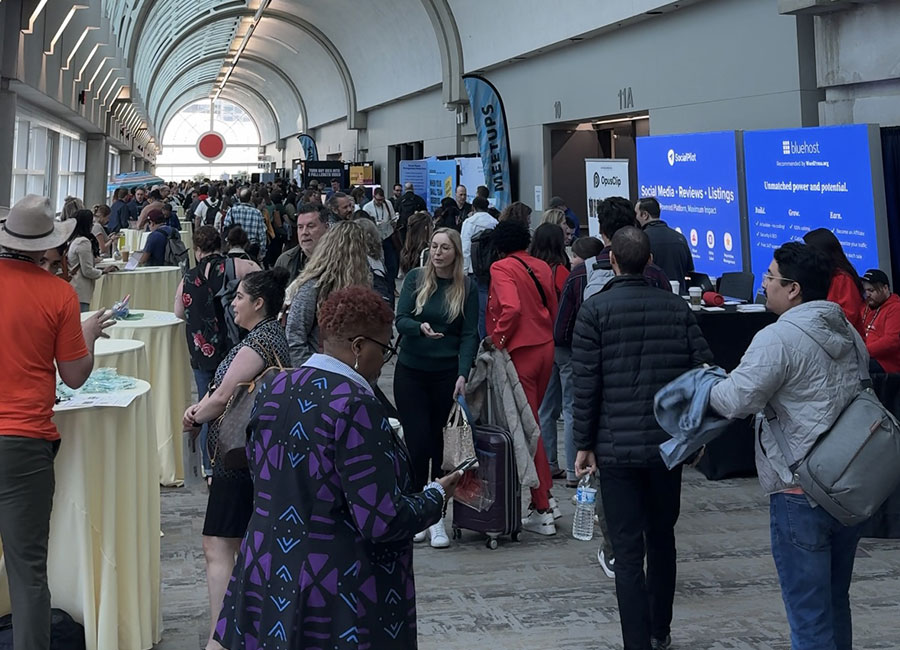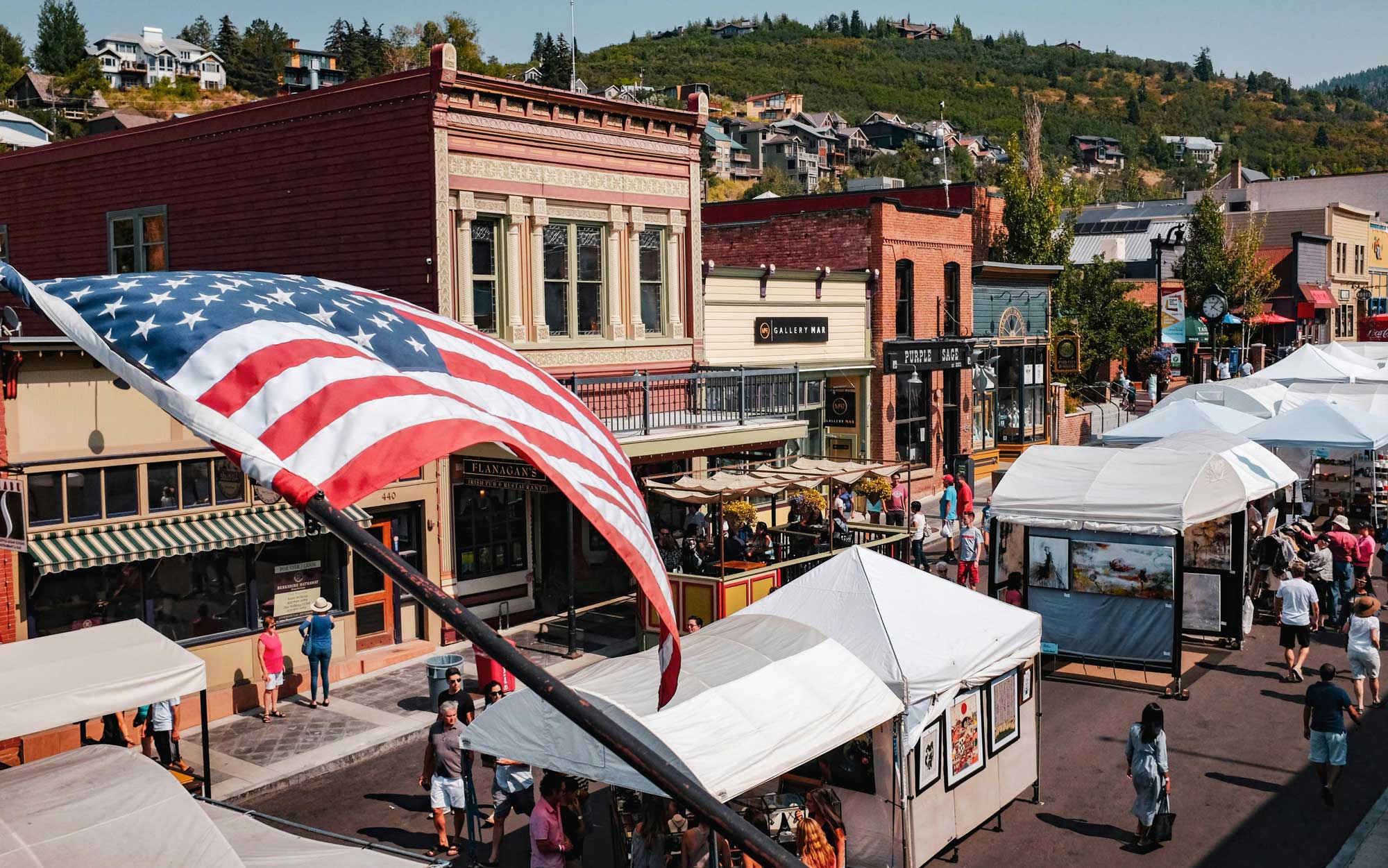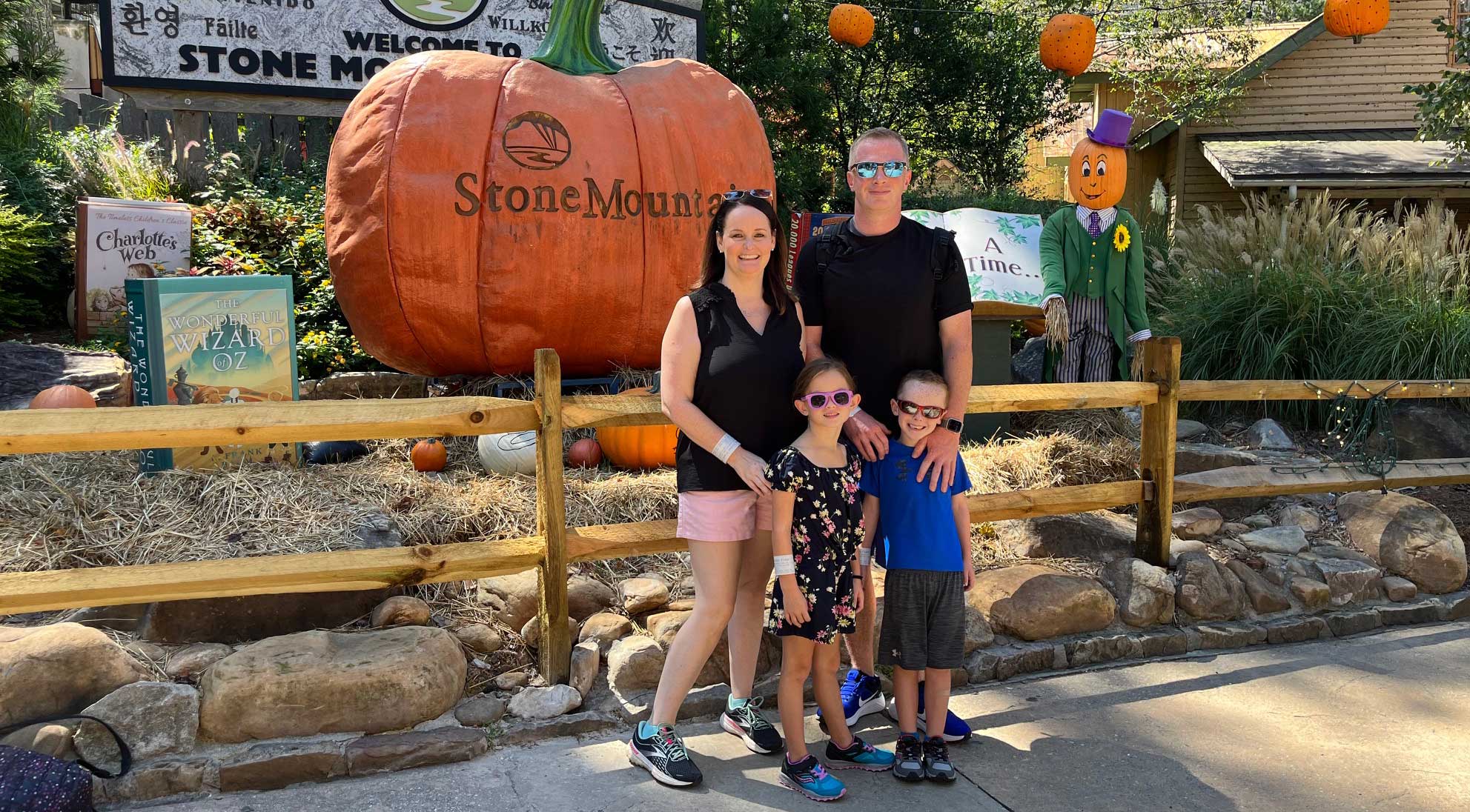The digital age has made social media an indispensable tool for hotels to connect with their audience, show off their unique offerings, and drive bookings. It is crucial for hotels to adapt their strategies according to ever-evolving trends in social media marketing. Our blog post explores four key social media trends hotels can use to enhance their marketing.
Short Form Video
Short form video should be a big focus within your social media strategy. For hotels, short form videos provide an opportunity to showcase their property, amenities and unique experiences in a visually compelling format. Whether it’s a tour of the hotel’s suites, a behind-the-scenes look at the culinary team and talents in the kitchen, or a glimpse of the breathtaking views from the rooftop pool, short form videos allow hotels to bring their brand to life in a dynamic and memorable way. By incorporating trending music, hotels can create content that resonates with their audience and encourages them to take action, whether it’s booking a stay or sharing the content with their friends.
Examples include:
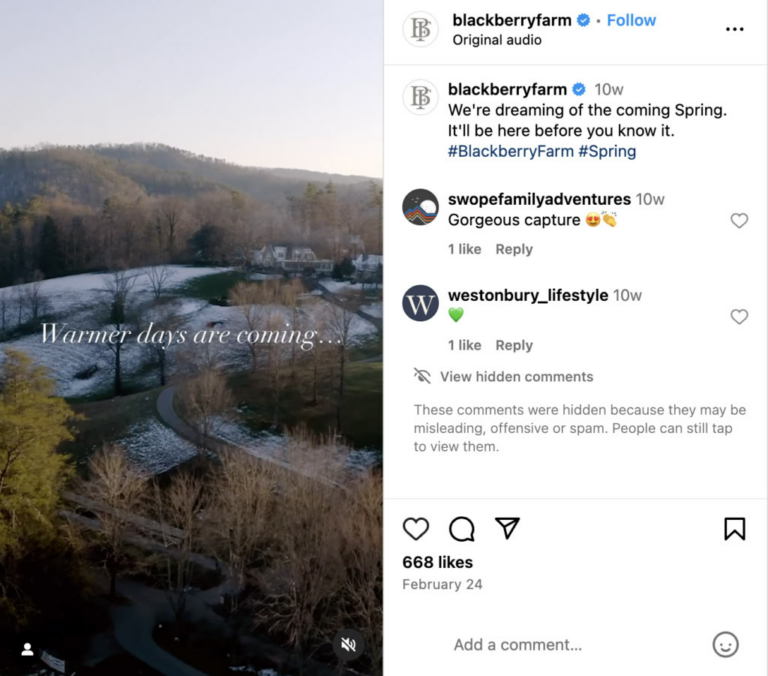
(Blackberry Farm showing the property in the winter vs the spring)
Brand Collabs
Collaborating with other brands can be a powerful strategy for hotels to expand their reach and tap into new audiences. An example of a potential collaboration would be collaborating with CorePower Yoga to bring health and wellness influencers on-site for a trip that highlights your fitness facilities, yoga retreats, wellness packages, etc. These collaborations not only create buzz and excitement but also provide hotels with an opportunity to showcase their property to a highly engaged and relevant audience. By partnering with brands that share similar values and target demographics, hotels can create mutually beneficial campaigns that drive brand awareness, increase engagement, and generate bookings. Whether it’s a wellness retreat with a fitness apparel brand, a culinary experience with a gourmet food company, or a sustainability-focused initiative with an eco-friendly brand, the possibilities for brand collaborations are endless.
Influencer Partnerships
Influencer marketing has become a cornerstone of many hotels’ social media strategies, allowing them to leverage the reach and influence of popular personalities to promote their brand. By partnering with influencers who align with their brand image and target audience, hotels can reach new followers, build credibility, and drive bookings. From travel bloggers and lifestyle influencers to foodies and wellness gurus, hotels can collaborate with a diverse range of influencers to create authentic and engaging content that showcases their property and amenities. Whether it’s a sponsored stay, a hosted event, or a branded content collaboration, influencer partnerships offer hotels a unique opportunity to connect with their audience in a meaningful way and inspire them to visit.
These partnerships can also lead to having UGC content that you’re able to use for your own social or digital marketing needs.
Sustainable Travel
Sustainability has emerged as a key consideration when choosing accommodations as travelers become more conscious of their environmental footprint. By highlighting eco-friendly initiatives on social channels, such as renewable energy systems and waste reduction programs, hotels can demonstrate their commitment to sustainability. Inspiring others to make environmentally friendly choices can be accomplished by showcasing the hotel’s efforts to reduce plastic waste, partnering with local conservation organizations, or promoting eco-friendly activities and experiences.
Examples include:
Fogo Island Inn sharing about their executive chef traveling to the Climavore Assembly, a conference that focuses on the way humans eat as the climate continues to change.
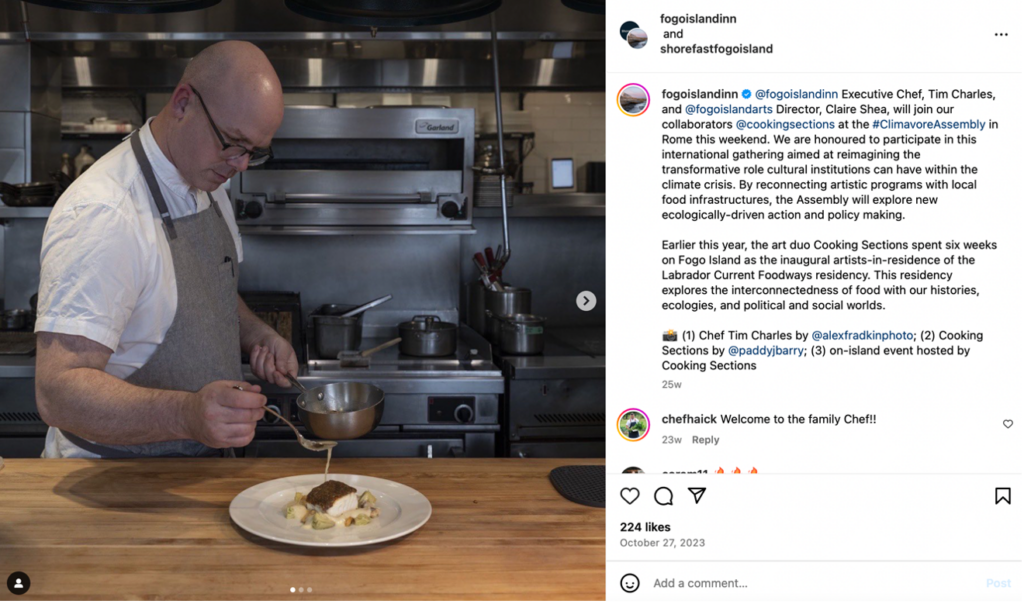
Storytelling Series
For hotels, storytelling has always been a powerful tool for connecting with their audiences. A storytelling series allows hotels to showcase their local culture and attractions, share guest testimonials and experiences, or highlight the history and heritage of their hotel. By using visuals, text, and multimedia elements, hotels can create a cohesive and memorable storytelling experience that makes them relatable and inspires audiences to book a stay.
Examples include:
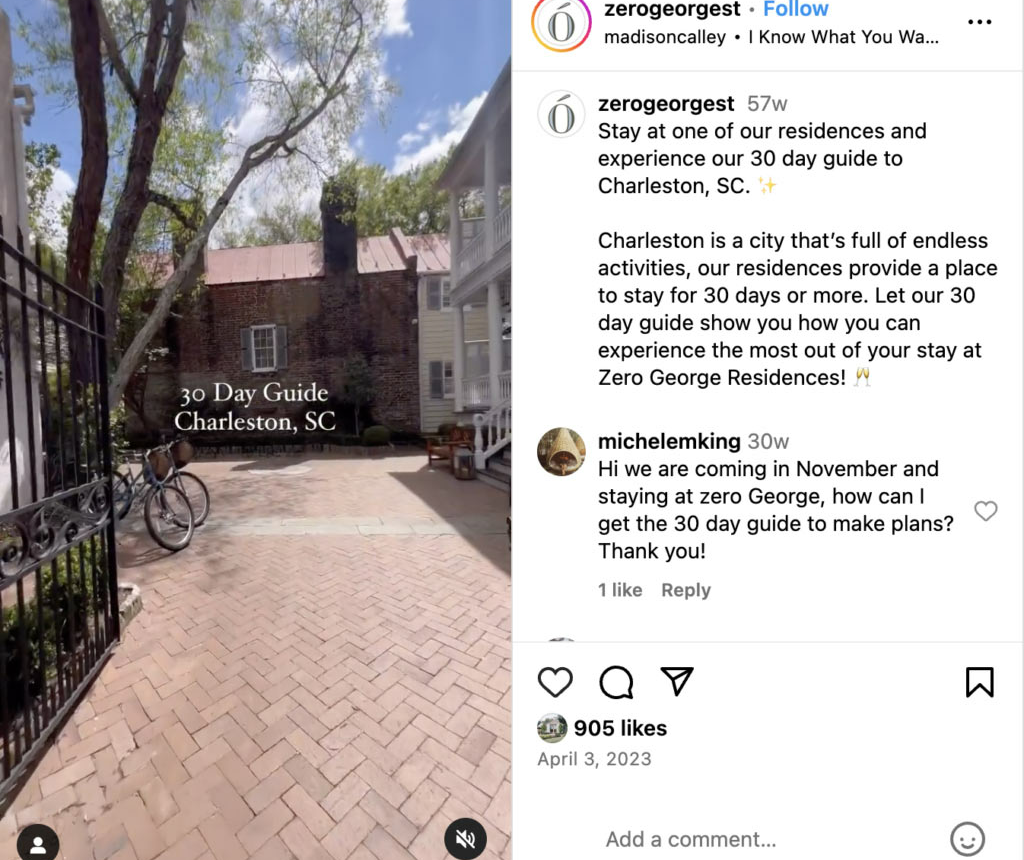
(Zero George creates a “30 Day Guide” series to Charleston to highlight different things to do for guests)
In conclusion, social media presents hotels with a wealth of opportunities to elevate their marketing strategy and engage with their audience in meaningful ways. By embracing trends such as short form video, brand collabs, influencer partnerships, sustainable travel, and storytelling series, hotels can create a strong and authentic presence on social media that drives brand awareness, builds loyalty, and ultimately leads to increased bookings and revenue.
